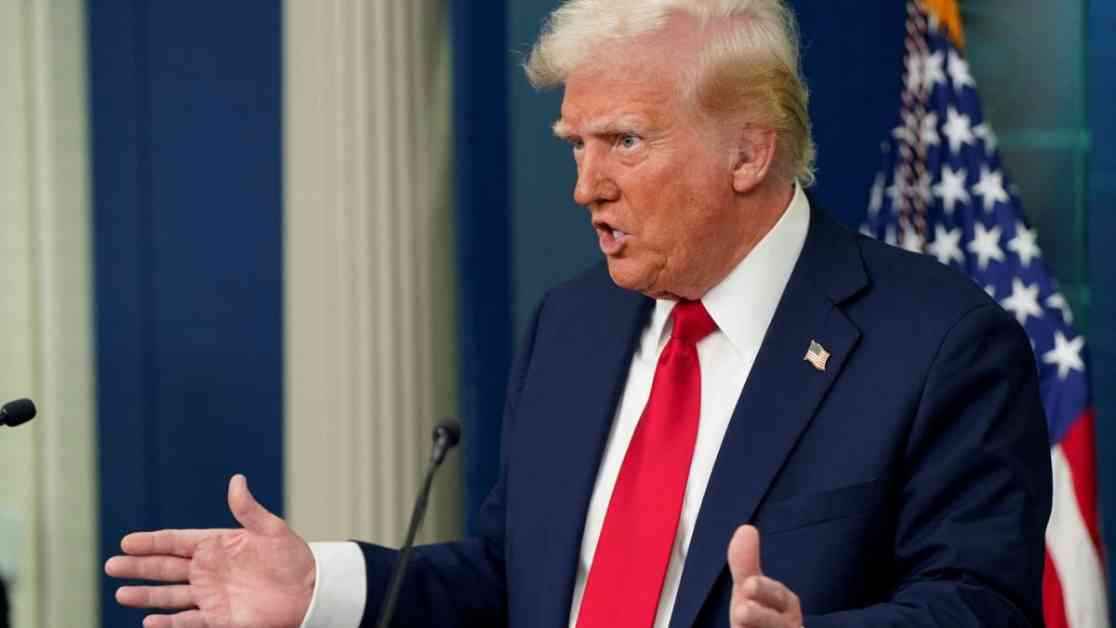President Donald Trump criticized former President Joe Biden and diversity efforts after a tragic midair collision between an American Airlines jet and an Army Black Hawk helicopter above Washington, D.C. The incident resulted in the loss of 67 lives, marking the deadliest U.S. plane crash in over two decades. Amidst the somber aftermath, Trump’s focus shifted from offering condolences to attacking his political adversaries and DEI programs.
The catastrophic event unfolded late Wednesday evening as an American Airlines regional jet was descending to land at Ronald Reagan Washington National Airport. Suddenly, an Army helicopter collided with the plane at approximately 400 feet above the Potomac River, sending both aircraft plunging into the icy waters below. The collision resulted in the tragic deaths of all 64 individuals on board the airplane and three soldiers aboard the helicopter, sending shockwaves through the nation.
As the emergency response unfolded and first responders combed the river for victims, the nation awaited answers and solace in the face of such unspeakable loss. However, Trump’s White House news conference took an unexpected turn as he diverted from expressing empathy to launching scathing criticisms at his predecessors, particularly Biden and former President Barack Obama. Trump boldly claimed that he had elevated aviation safety standards during his tenure, only for Biden to purportedly regress them upon taking office, citing a policy shift that he deemed detrimental.
Furthermore, Trump’s tirade extended to the Federal Aviation Administration (FAA), where he scrutinized language concerning the hiring of individuals with disabilities, insinuating a connection to the tragic crash. Despite lacking substantial evidence to support his claims, Trump emphasized his stance on replacing DEI hiring programs with merit-based systems, a move that drew mixed reactions and fueled political tensions.
In response to Trump’s incendiary remarks, various officials and lawmakers weighed in on the unfolding controversy. Transportation Secretary Sean Duffy and Defense Secretary Pete Hegseth echoed Trump’s sentiments, advocating for merit-based hiring practices and denouncing DEI efforts. Meanwhile, Biden’s Transportation Secretary, Pete Buttigieg, condemned Trump’s accusations, labeling them as baseless and asserting the need for real leadership in the wake of the disaster.
The escalating tensions surrounding the crash and its aftermath underscored the critical need for accountability, transparency, and above all, respect for the lives lost. As Rep. Ilhan Omar decried Trump’s administration for attributing the tragedy to minorities and white women, the nation grappled with the implications of such divisive rhetoric in times of national mourning. Despite the acrimonious exchanges and blame-shifting, the focus remained on the investigation led by the National Transportation Safety Board (NTSB) to uncover the truth behind the disastrous collision.
As the investigation unfolds and the nation grieves the loss of 67 souls, Trump’s contentious remarks and the ensuing backlash highlight the delicate balance between political agendas and human compassion in the face of tragedy. The quest for answers, justice, and preventive measures looms large, urging leaders to set aside differences and prioritize safety above all else. Flying may indeed be safe, as Trump asserted, but the enduring memory of the lives lost in the D.C. plane crash serves as a poignant reminder of the fragility of human existence amidst the tumult of political discourse.
In the aftermath of the crash, as families mourned and the nation grappled with the aftermath, the quest for accountability and transparency took center stage. Amidst the blame game and political jockeying, the true impact of the tragedy resonated across the nation, calling for unity and resilience in the face of adversity. As investigations continue and the nation seeks closure, the memory of the 67 lives lost in the D.C. plane crash remains etched in the collective consciousness, a stark reminder of the fleeting nature of life and the enduring quest for truth and justice.


